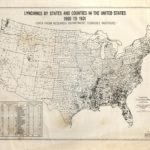By CHARLES BABINGTON and BILL BARROW, Associated Press
PERRY, Georgia (AP) _ Candidates everywhere this election season are struggling for ways to frame the state of the economy, ranked by U.S. voters as the most important issue.
The result is a blame game that cuts in multiple directions depending on the contest. Even in states where rising unemployment might offer tempting targets, many candidates fear unintended consequences and political boomerangs if they delve too deeply into economic debates.
Democrats in Republican-run states worry that an emphasis on economic woes might reflect badly on Obama, and by extension, themselves. But Republicans in those same states often worry that highlighting a shaky economy will reflect badly on a governor from their party or Republican candidates for the Senate. Republicans need six more seats to control the upper chamber.
The national unemployment rate is 5.9 percent, the lowest in six years. But local unemployment rates have ticked up recently in four states with sharply contested Senate races: North Carolina, Louisiana, Alaska and Georgia.
The unemployment rate has fallen in Colorado and Kentucky. It has been flat lately in Iowa, Arkansas and Kansas. All those states have contested Senate races.
In Georgia, Republican Senate nominee David Perdue doesn’t miss a chance to blame President Barack Obama and a Democratic-led Senate for America’s slow economic recovery.
“This president sold us a bill of goods,” Perdue told a raucous crowd at the Georgia state fairgrounds during a debate with Democratic nominee Michelle Nunn this week. “We have fewer working today than at any time since Jimmy Carter was president.”
Within moments, the state’s Republican governor, Nathan Deal, stood on the same stage while his Democratic challenger _ Carter’s grandson _ sharply blamed the governor for Georgia’s 8.1 percent unemployment rate, which in August was America’s highest.
“You have watched this economy in Georgia leave the middle class behind,” said Jason Carter, a state senator.
Unemployment plays a bigger role in races for governor, a post more directly associated with a state’s economy. But Senate candidates with prominent roles in state governments are also at risk of being blamed for upticks in unemployment. Voters are left to decide who is responsible for the sluggish job growth in a state run by Republicans while the federal government is split between a Republican-run House of Representatives and a Democratic-led Senate and White House.
North Carolina is an example. The August unemployment rate was 6.8 percent, up from 6.2 percent in April _ a potential opportunity for Sen. Kay Hagan, the Democrat seeking a second term.
She accuses her Republican challenger _ state House of Representatives Speaker Thom Tillis _spearheading ill-advised tax and spending cuts along with the state’s Republican governor. Hagan says their cuts to education funding drove away teachers this year and will hurt North Carolina’s job growth in future years.
Outside the debate format, Tillis and Hagan tend to emphasize other issues.
“It’s a tough issue for both campaigns because neither one knows who the public will blame,” said Thomas Mills, a Democratic blogger who has worked for statewide campaigns. Hagan has gained traction lately by hitting Tillis on education and tax issues, Mills said, “so I’m not sure she wants to change the subject right now.”
The story is similar in several other states with tight Senate races.
In many states, Republicans seem content to stick with their longtime favorite issue: attacking the president’s health care overhaul, widely known as “Obamacare.” And several Democrats want to distance themselves from Obama, which complicates any effort to tout an improving economy associated with him.
Even in states with falling unemployment rates, Senate candidates are reluctant to highlight the news.
Kentuckians watching political TV ads might think their state’s unemployment rate, at 7.1 percent, has risen instead of fallen lately.
Allies of Sen. Mitch McConnell, the Republican leader seeking a sixth term, have run ads in which a Kentucky coal miner says he lost his job thanks to a “war on coal.” McConnell repeatedly says Obama wages such a war with help from Democratic candidate Alison Lundergan Grimes, even though she sharply criticizes the president’s coal policies.
___
Babington reported from Washington.










